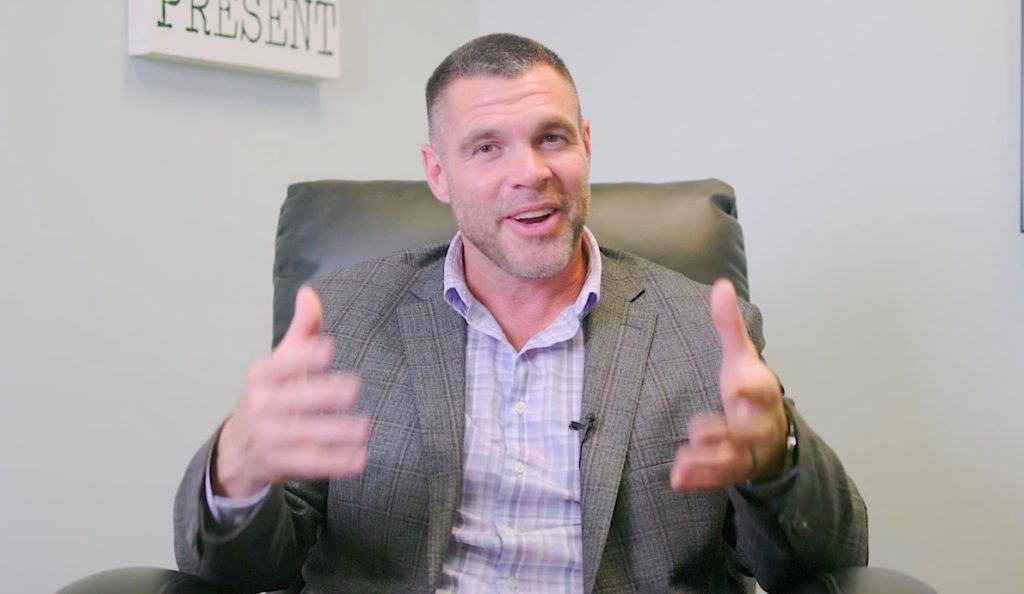Hypnosis is used for many purposes in the modern day. It has actually grown more in favor in recent years as a treatment for mental health issue, and hypnosis/hypnotherapy has become one of the more mainstream alternative treatments.
Certified hypnotherapists today treat everything from cigarette addiction to skin diseases, as well as soothing patients in preparation for painful medical procedures (including dental work, surgery and chemotherapy injections). This article will discuss the hypnotic state of “trance,” how hypnosis can affect the symptoms of anxiety, and the possible benefits of hypnosis for people with anxiety disorders.
Hypnosis and Relaxation: The “Trance” State
Hypnosis is just one of many types of treatment options that are considered “alternative medicine.” One of the reasons it has this label is because, contrary to popular belief, there are very few studies that carefully examine whether or not hypnosis works. For a more comprehensive treatment, make sure you take my anxiety test now.
For hypnosis to work, the hypnotist must first put his or her client into what is called a “trance state.” This is a state of mental and physical relaxation in which the conscious mind is encouraged to rest, while the subconscious mind is kept alert.
The “conscious mind” is what you mainly think of as your mind: the part that thinks about what to say or do next. The “subconscious mind” is just a name for another type of awareness in your brain, the part that is in charge of the beliefs and emotions connected to what you say and do.
All of these things are functions of your brain, but hypnotists separate them by calling them two different “minds” because they treat each set of functions separately.
Hypnotists address the subconscious mind because their job isn’t to tell you what to do and explain why you should do it (except when they tell your conscious mind to take a break so they can address the subconscious, with your permission): instead, it’s to change your beliefs and feelings about what you do, in order for you to feel better about doing whatever it is you want to do (or, alternatively, worse about doing what you don’t want to do).
An effective trance state, or initial state of hypnotic relaxation, has several notable physical results:
• Slowed breathing patterns
• Decreased heart rate
• Muscle relaxation
• Calm, relaxed speaking voice
• Rapid eye movement (REM)
Due to the relaxed atmosphere and state in which hypnosis must be performed, it is a safe treatment for anxiety (so long as it is being performed by a certified professional). Sitting back or lying down and being mentally guided through physical and mental relaxation can be a valuable experience for a person with anxiety, as it may help them to understand what they need to do (both physically and mentally) in order to relax. Furthermore, hypnosis is designed to avoid escalating any anxiety symptoms you may feel (rapid heart rate, rapid breathing, muscle tension), and has no unexpected side effects (unlike many medications).
If you are an anxious person you may find it difficult to imagine that you would be able to relax enough to enter the trance state required for hypnotic work to be effective. However, both your subconscious mind (your beliefs and emotions) and your conscious mind (the awareness of what you are doing) are always present and listening on some level. If you consciously want to be helped, it is a simple matter of finding a certified professional who makes you feel comfortable, ensuring that they understand the effects you want the treatment to have, and opening your mind to hearing their suggestions.
3 Anxiety Problems Hypnosis Can Address
In terms of directly addressing your anxiety, there are 3 anxiety-related problems that hypnotism is commonly used to address.
• Physical Tension/Strain Physical pain and tension (often having roots in emotional tension) can be addressed by hypnotism. Addressing and working to alter the beliefs that you have about the triggers for your anxiety can help reduce the frequency and/or intensity of the physically straining symptoms of anxiety such as a rapid heart rate, rapid breathing and shaking. In addition, it can ease feelings of discomfort and strain by implanting the suggestion that you feel more physically comfortable than you actually do.
• Emotional Strain/Moodiness Along with causing physical strain, constant or frequent anxiety can also put you in a strained emotional state. The bodily energy required by the physical symptoms of anxiety, in combination with the persistent feelings of discontentment and worry, can make you feel drained and/or on edge. Hypnotism’s general purpose is to put people in a more positive frame of mind, altering unnecessary negative beliefs and implanting more helpful ones. In addressing this symptom, a hypnotist may focus on implanting the belief that you feel happy, content, and confident in your ability to address and resolve the causes of your anxiety.
• Sleeping Problems Many people with anxiety also have difficulty sleeping well. Getting to sleep in an anxious state and sleeping deeply when nightmares and muscle tension are keeping you awake can be nearly impossible. Hypnotists can assist with sleep deprivation by implanting the suggestion that you have gotten plenty of restful sleep recently. Alternatively, or in addition, they can help you to alter your anxious thought patterns so that they do not spiral out of control and keep you awake (as well as causing the panic attacks that can result in muscle tension).
• Phobic Reactions Going to a hypnotist for help in conquering a phobia (for example, a fear of social situations or crowded rooms) can be far preferable to regularly taking medication in order to remain calm during everyday activities (if, of course, you find that hypnotism works for you). A hypnotist will attempt to replace your unhealthy or illogical beliefs about the object of your phobia with more logically sound and useful beliefs.
Both mild cases of anxiety and clinically diagnosed disorders can result in these side effects. If you have experienced any of the above, finding out whether hypnotism works for you may help you to conquer these difficulties and hopefully eliminate them altogether.
Therapy vs. Hypnosis
Cognitive behavioral therapy (or CBT) is closely related to hypnosis in that it is based on the idea that some problems are not easily addressed through rational thought, and should instead be addressed through training the person to practice healthier thought patterns and to let go of harmful beliefs.
Cognitive behavioral therapy is used by most therapists who work with patients experiencing anxiety and depression. Unlike hypnosis, it does not require a trance state, but like hypnosis, it openly addresses your emotional and mental patterns and beliefs in order to influence your behavior.
If you have been diagnosed with anxiety and feel that therapy has improved you condition, hypnotism is more likely to work for you simply because it operates on similar (and therefore familiar) principles that your mind is already open to.
Hypnosis as Placebo
Your brain is the most powerful organ in your body. Placebo trials in which patients drastically improve without medication due to a belief that their bodies will heal is proof of this. Going to a hypnotist is an attempt to use the power of your beliefs to change your life for the better. In a way, hypnotism is about purposefully using the placebo effect to your advantage.
Unfortunately, according to most research, hypnosis does not really have any effect on long term mental health. There are very few studies that confirm hypnosis has any noticeable effect on the mind. However, there is some evidence that some people may be more easily influenced by hypnosis, so perhaps there are some people that are affected by hypnosis an some that are not.
Regardless, hypnosis is one of those gray areas where there may be something to it for some people, and it is completely safe to do. So if you’re looking for some type of alternative treatment and you want to try anxiety hypnosis, it may be worth your time – as long as you know that if it doesn’t work for you, you need to try something else.
On the other hand, if you want to try a different type of comprehensive anxiety treatment, make sure you take my anxiety test now. This test is an effective tool for learning more about your anxiety and how to treat it.


